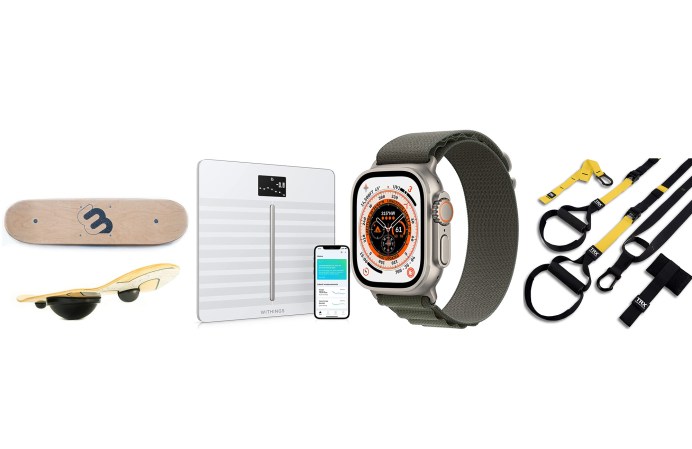


It’s a big deal when people don’t take the medications prescribed to them. In fact, studies estimate that patients failing to pop their pills—a problem known as non-adherence or noncompliance— costs the American health care system as much as $289 billion each year, and leads to roughly 10 percent of hospitilizations.
“Without exaggerating, a lot of people think of this as a major public health problem,” says Niteesh Choudhry, a physician and professor at Harvard Medical School who studies the issue. A common reason that comes up from patients about why they didn’t adhere to their meds, according to Choudhry? Forgetfulness.
Within the decade, several companies have introduced smart pill bottles to try to tackle this issue, and the latest on the scene is Pillsy, a Bluetooth-enabled bottle cap launched on Tuesday. Like its predecessors, Pillsy knows when you open and close the cap, allowing it to determine if you’ve taken your medication. It pairs with an app that sends reminders when it’s time for a pill, and can follow up with a text message or phone call if a patient doesn’t respond to the initial alert. The cap itself, which fits either a standard medication or vitamin bottle, blinks an LED, and makes a noise, when it’s time to medicate.
Sure, you could game the system by opening and closing the cap without taking the pill, but Jeff LeBrun, the CEO and cofounder of Pillsy, says that’s not the point; it’s meant for people who “want to take their medication and have a hard time.” Users can also choose to share their medication data with a caregiver, so the child of an elderly parent, for example, could receive an alert if Mom or Dad doesn’t take their medication.
Another problem Pillsy aims to solve is accidental double dosing: A user can check the app to see if they’ve taken their pill (as measured by whether or not the cap was opened); if they open the pill bottle again after they’ve taken it once, they get a warning.
Don’t forget to remember
To learn more about whether reminder devices can help people take their medications, Choudhry, of Harvard Medical School, recently conducted a study involving tens of thousands of people who take drugs regularly for conditions like hypertension or depression. The researchers focused on patients who hadn’t been adherent to taking their meds by using their refill histories as a proxy.
The experiment determined if basic reminder devices could help boost people’s medication compliance. Some subjects were mailed one of three low-tech reminder devices: a pill box with compartments lettered by day of the week, a bottle cap with a built-in digital timer, or a system with toggles that people slide back and forth when they’d taken a pill or not.
The results? The researchers saw no statistical difference between the control group, which got nothing in the mail, and any of the groups that received the reminder devices. Still, Choudhry doesn’t entirely dismiss the role of technology in this field.
“I think technology will invariably be part of the solution for this problem,” he says. “But technology in and of itself is not a complete and comprehensive solution.”

Pillsy is not alone in the world of medication tracking and reminders. A related product called AdhereTech is a smart pill bottle that doesn’t require the user to own a smartphone, and is not a direct-to-consumer device. AdhereTech users are, on average, 70 years old, according to the company’s CEO and cofounder, Josh Stein. AdhereTech works with pharmaceutical companies that produce medications to treat, for example, cancer or HIV. If someone misses a dose (which the bottle determines by whether or not it’s been opened; it also has another sensor that measures the bottle’s contents) but still doesn’t take it after being reminded, AdhereTech alerts the pharmacy that filled the medications.
Other smart bottle systems are called Vitality GlowCap and SMRxT.
Ultimately, there are multiple reminder options out there, from the simple to high-tech, but Choudhry says the tests results for them are still at the lab, metaphorically speaking. “We’re still waiting for evidence that any of these actually work,” he says.
A related issue is that devices that consumers can buy directly may be catering to people who need the least help: They “attract individuals who at some level may be the least likely to need them,” Choudhry adds. “They are the most-motivated, most-engaged, most-tech-savvy kind of folks.”
So, a solution like Pillsy might be great for the person who buys it, but isn’t a panacea for the broader issue. “We need to find solutions which then can reach everybody, and that are broadly scalable,” he says.
LeBrun, of Pillsy, says that they are “passionate about trying to correct the overall issue” and points to forgetfulness as the primary problem they’re trying to address. They see Pillsy as a “personal trainer” for medication-taking.
As serious as a heart attack
Erica Spatz, a cardiologist and assistant professor at the Yale University School of Medicine, says that even in the extreme case of heart attacks, way too many people aren’t taking all of their medications following the event. “At least 20 percent are not taking all of their cardiac medications as prescribed,” she says.
But Spatz says the issue goes beyond patients simply forgetting to take their pills. “Why people don’t take their medication is really complicated,” she says. Sure, forgetting can be an issue, but it’s far from the only one.
“Unless we start to sit down with [patients] and talk about it, we won’t ever learn why [they didn’t take their prescriptions],” she says. Those reasons can include worry about cost, or even a fear of what daily medication might do to the body, especially when the ‘script is for a chronic condition like high blood pressure. “The reasons are varied,” she says, “and they’re complex.”
This article has been updated to include more information about the AdhereTech smart pill bottle.







